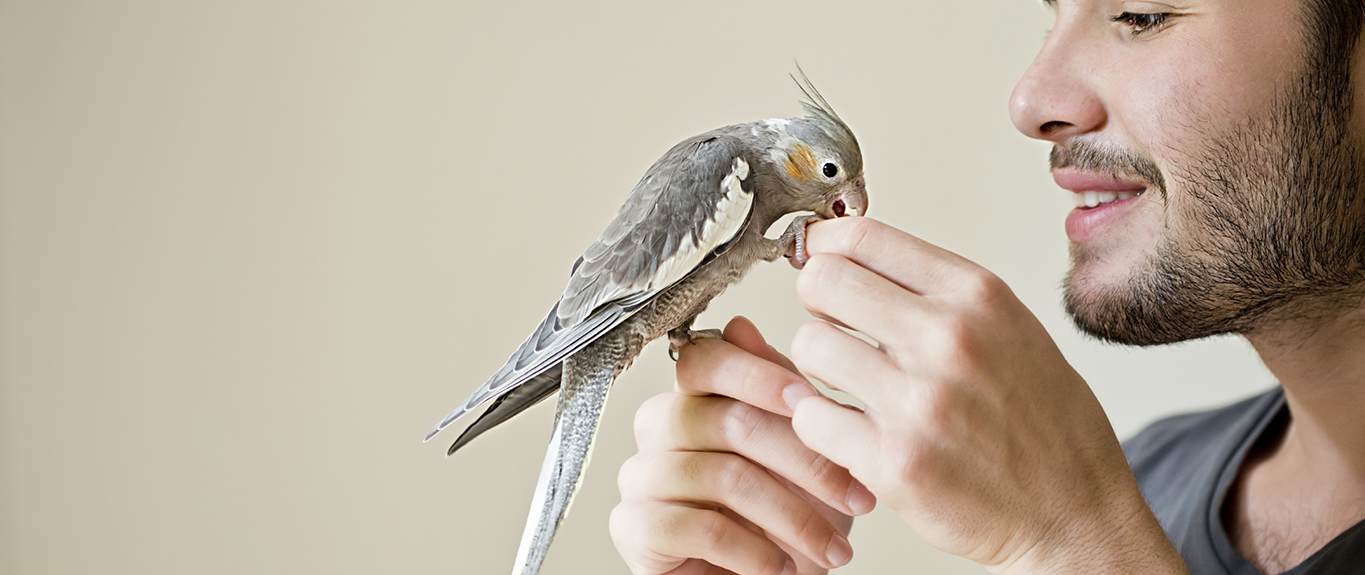What is COVID-19?

COVID-19 is a disease caused by a new coronavirus, SARS-CoV-2, that has not previously been identified in humans. This virus is not the same coronavirus that can cause the common cold in humans, nor is it the same as canine coronavirus (CCoV).
Coronaviruses are a family of viruses characterized by crown-like spikes on their surface as seen under the microscope. There are many viruses in this family that cause various types of diseases, such as diarrhea and upper respiratory infections.
How is it transmitted?
Current evidence suggests that person-to-person spread is the main source of infection. This occurs through respiratory droplets created when an infected person sneezes or coughs. There is also a possibility of spread via objects or surfaces that have been exposed to the virus; however, this is not suspected as a main source of infection.
Have any dogs tested positive for the virus that causes COVID-19?
Two dogs in Hong Kong have tested positive for the new coronavirus. They were tested using a nasal swab that detects the presence of virus genetic material. It is a VERY sensitive test, meaning positive results can occur, even if the virus is in pieces. These results may be cases of infection, but not illness, and they do not prove the ability of the dog to transmit the virus to others.
The first dog, a 17-year-old Pomeranian, tested positive on a swab test after the owner was diagnosed with COVID-19. The dog spent time in quarantine until the nasal swab was negative. While in quarantine, the dog never showed signs of illness.
Two days after a negative nasal swab and being released to the owner, the dog passed away of unknown causes. The owner declined a necropsy (autopsy of a non-human animal). It is very unlikely that this dog died to COVID-19, since it never exhibited signs of illness. It is extremely likely that the dog passed away from old age, other known health issues, or the stress of quarantine. A blood test that looks for signs of an immune response to COVID-19 was returned after the dog passed away and was positive. This positive result shows that the dog was likely infected, but without symptoms.
The second dog, a 2-year-old German shepherd, tested positive on a swab test after the owner was diagnosed with COVID-19. Another dog in the household tested negative. The dog that tested positive is under quarantine and will continue to be tested until a negative test is confirmed. Blood tests will also be monitored.
Have any cats tested positive for the virus that causes COVID-19?
On March 27, 2020, it was reported that a cat in Belgium tested positive from a feces sample. The cat had been in close contact with the owner who was positive for COVID-19. The cat was showing signs of illness including diarrhea, vomiting, and breathing difficulties. However, contamination of the sample cannot be ruled out, as the sample was taken from the environment and by the owner who was positive for COVID-19. Further information is pending.
A second cat tested positive in Hong Kong on March 31, 2020 on mouth, nose, and rectal swabs, but has not exhibited signs of illness. Results from blood tests are pending.
Have any other animals tested positive for the virus that causes COVID-19?
On April 5, 2020, it was reported that a tiger at the Bronx Zoo tested positive for the virus that causes COVID-19. She, three other tigers, and 3 lions have developed a dry cough. Because testing requires anesthesia, only one tiger was tested, but it is presumed that all the symptomatic cats likely have COVID-19. There are other tigers at the zoo that have not developed signs at this time, and none of the other large cats (leopards, cheetahs, pumas, or servals) have shown signs of illness. Infection occurred due to exposure to an asymptomatic caretaker with COVID-19, prior to that person developing symptoms.
What does this all mean? Can pets be infected with COVID-19?
All of the information to date (as of April 6, 2020) indicates that dogs and cats can be infected by the COVID-19 virus, but it appears to be an infrequent occurrence. In Hong Kong, at least 17 dogs and 9 cats have been tested from homes with owners that were either confirmed COVID-19 cases or were close contacts to a COVID-19 patient, and only 2 dogs and 2 cats have tested positive. Keep in mind that to date, there are over one million human cases of COVID-19 and only a few pets have tested positive and only one has exhibited signs and tested positive.
It is important to understand that evidence of infection is not evidence of animals being able to spread the virus to humans. The situation is evolving and is being monitored by animal health experts around the world.
Should I monitor my pet for any signs?
Because there is only limited evidence that pets can become ill with COVID-19, there are no specific recommendations. However, there is still much to learn about this new virus, and vigilance is key. If your pet exhibits signs of illness (coughing, sneezing, fever, abnormally low energy, etc.), particularly if your pet has been exposed to someone known to be infected with COVID-19, call your veterinarian for guidance and to arrange for testing, treatment, etc. Special protocols are in place at veterinary clinics, including physical distancing to protect everyone from spread of the disease.
If I get sick, is it safe for me to care for my pets?
If you have been diagnosed with COVID-19, public health officials recommend you restrict contact with pets as a precaution until more information is known about the virus. If possible, have another member of your household care for your pet.
If you must provide care for your pet yourself, follow the recommendations published by the Centers for Disease Control and Prevention: wash your hands thoroughly with soap and water for 20 seconds before and after any interaction with your pets; after coughing, sneezing, blowing your nose, or touching for your face; avoid close contact with your pet snuggling, kissing, or sleeping with your pet); wear a mask—even a cloth mask—to help decrease droplet spread when coughing or sneezing; and clean and disinfect frequently touched surfaces.
If you are not ill with COVID-19, you may interact with your pet as you normally would, including walking them on a leash, feeding them, and playing with them. Always maintain physical distancing with other people while out for a walk and adhere to local regulations regarding park and trail closures.
Should my pet wear a face mask as a precaution?
No. First, it is unlikely that this will not protect your pet from any potential disease transmission. Second, it can cause breathing difficulties, especially in certain breeds of cats and dogs. Third, masks must be saved for use in people with active signs of infection and medical professionals.
Is there a vaccine?
Currently, a vaccine for this new SARS-CoV-2 coronavirus is not available. There is a vaccine for the canine coronavirus (CCoV), however, this vaccine does not work to protect you or your pet from COVID-19.
Related Content
Caring for Your Pets if You Have COVID-19
Tips for Pet Sitters During the COVID-19 Pandemic
Tips for Dog Walkers During the COVID-19 Pandemic
Physical (Social) Distancing and Your Pet During the COVID-19 Pandemic








